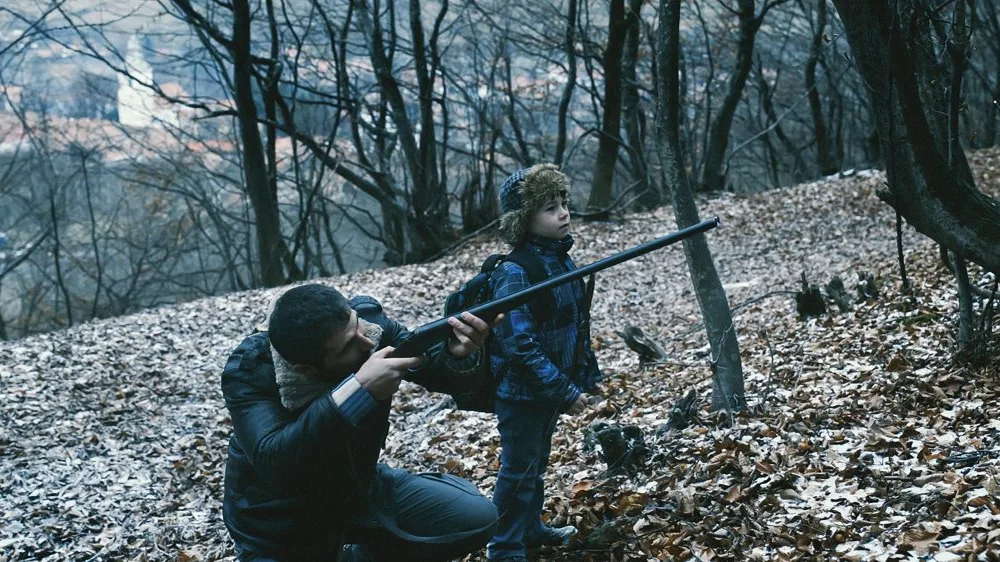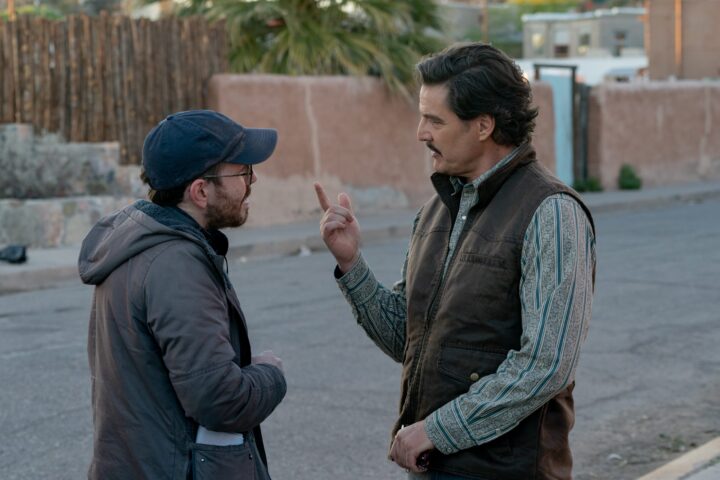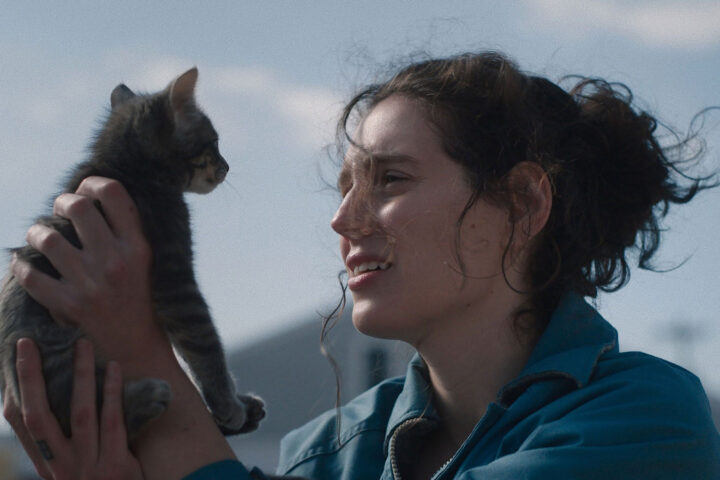Romanian filmmaker Cristian Mungiu specializes in hard hitting cultural excoriations that have made him a foremost international voice in both social realism and social critique.
His masterful, 2007 Cannes-winning breakout suspenser 4 Months, 3 Weeks and 2 Days examined the perils faced by a pair of collegiates desperately seeking an illegal abortion under the microscope of Ceaușescu’s communism; Beyond the Hills (2013) found another pair of young women, this time lovers, persecuted into exorcism by an orthodox Christian convent; and Graduation (2016), a steely heartbreaker about corruption, examined a father willing to do anything, even compromise his morals and the law, to obtain a college entrance exam for his injured daughter.
In his new picture, R.M.N. (opening today at the Gene Siskel Film Center), Mungiu turns his lens toward provincial xenophobia and its poisonous impact on several lives in a small Transylvanian village, taking on the hot-button topic of immigration across modern Europe to craft a topical, slow-burn picture of cumulative force.
Based on a real life 2020 incident that occurred in Ditrău, Romania, in which a population of nearly 2000 drove a trio of Sri Lankan immigrant bakery workers out of town, the picture premiered at Cannes last year before its current, delayed stateside opening. While it failed to capture a prize at the festival, its tense exercise in fear and loathing is Mungiu’s most thematically universal picture, albeit one that finds the filmmaker adopting a slightly less individual point of view than earlier canon entries, this time proving ever so slightly less compelling (which is to say it still remains better than 95% of most of today’s movies).
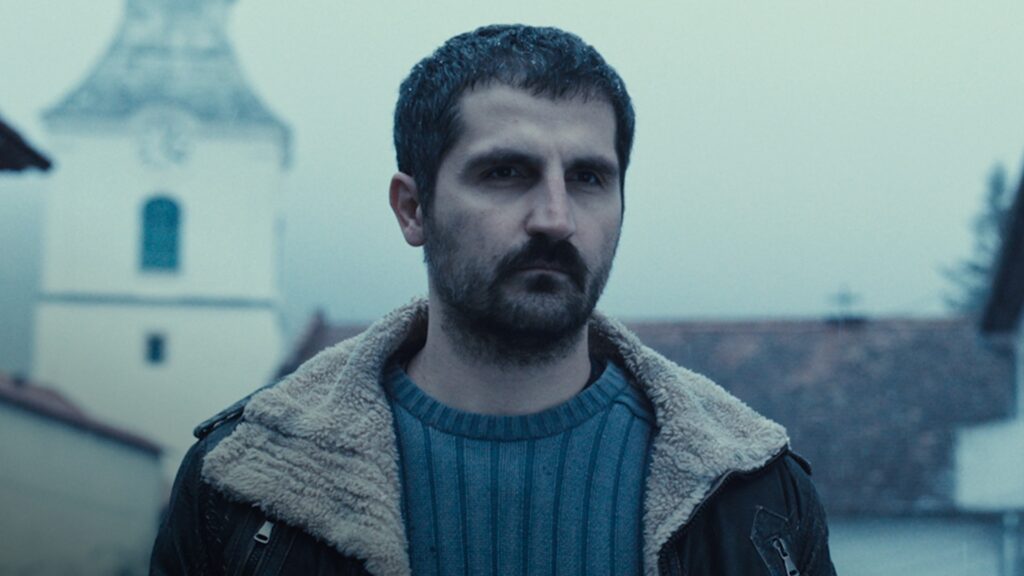
Picture opens just before Christmas in a German slaughterhouse where a brutish lout named Matthias (a glowering Marin Grigore) issues a beatdown to a coworker before returning home to rural Romania for an apparent emergency. A strong, thuggish rake of few words, Matthias has a young son named Rudi (Mark Edward Blenyesi), deeply spooked by something he’s seen in the woods and since rendered mute. Matthias is estranged from wife Ana (Marcina Bârlădeanu), whom he accuses of coddling the boy, who has taken to crochet and is terrified of walking through the woods alone to school.
Unemployed Matthias nonetheless turns down a job offer from former lover and town bakery boss Csilla (a superbly complex Judith State), a cellist whiling away evenings perfecting the score to Wong Kar-Wai’s In the Mood for Love, which Mungiu uses liberally throughout. With intimations of a stormy past relationship, Csilla nonetheless entertains a sexual fling the man who will not tell her he loves her and sulks around with a defiantly alpha posture.
As a dramatic protagonist, Matthias doesn’t do himself any favors, gruffly authentic yet resolutely unappealing, threatening to kill Ana should she keep him from their son while referring to the child as a “sissy.” When not slaughtering the local priest’s pig or tending to declining father Papa Otto (Andrei Finte), Matthias takes his son for wooded target practice and boating on an icy lake for survival lessons. For his part, Rudi remains uninterested in both the activities and his father.
At the midpoint, just as the film begins to slightly plod, Mungiu somewhat shifts perspective from Matthias to Csilla, who with bakery owner Mme. Denes (Orsolya Moldován) is unable to fill jobs with locals, many of whom refuse to work for what they believe to be minimum wage. Their solution, to import a pair of goodnatured, hardworking Sri Lankan immigrants Mahinda (Amitha Jayasinghe) and Alick (Gihan Edirisinghe), is the catalyst for the film’s second half, a study of corrosive small-town aggression.
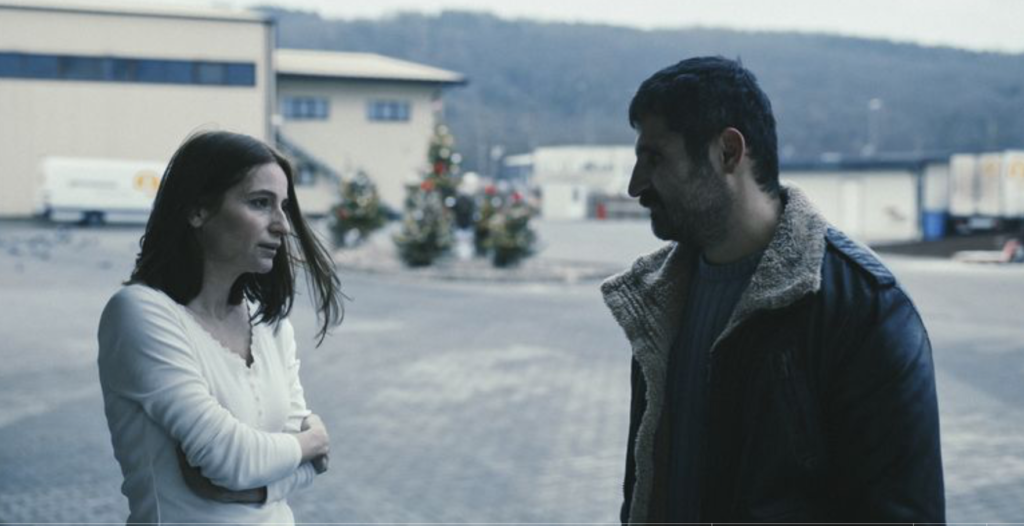
While both of the Sri Lankan men are kind hearted, ingratiating and Christian, their sudden arrival at the Sunday church service stirs up a torrent of racial and nationalistic fervor, the men quickly accused of being Muslims, outsiders and interlopers suited for swift expulsion. As one character asserts, “I have nothing against them. They just need to be in their own country.” The men, who have committed no crimes, taken no one’s jobs and are positively contributing new citizens, are immediately marked as “the other,” and Csilla, their boss, friend and tireless advocate, finds herself firebombed by a masked, KKK-esque cabal.
In one of the film’s best scenes, she confronts the local priest (József Bíró) on his willingness to follow the will of hate vs. that of Christ. “Don’t lecture me on religion when you never come to church,” he tells her. Her reply: “What good is going to church if you act like this?” In such moments the film veers toward polemic, essentially so.
This debate explodes in an extraordinary extended late scene, Mungiu’s view of clannish, pastoral xenophobia on savage display in a remarkable, single-shot, 17-minute take where the townspeople, mainly Romanian and Hungarian, gather at the “cultural center” to vehemently debate the men’s fates via dozens of agitated, rapid-fire accusations whipped into a bitter frenzy of naked hate. Both Csilla and Mme. Denis, their bakery boycotted, display immense courage, taking on the mob with facts and reason, dispelling falsehoods on deaf ears.
Also swept into the intolerance (long enough for Charlie Hebdo to be invoked) is a French NGO conservationist on assignment to study the region’s bear population (just which animals here are most dangerous anyway?) and issue a passionate defense of EU multiculturalism.
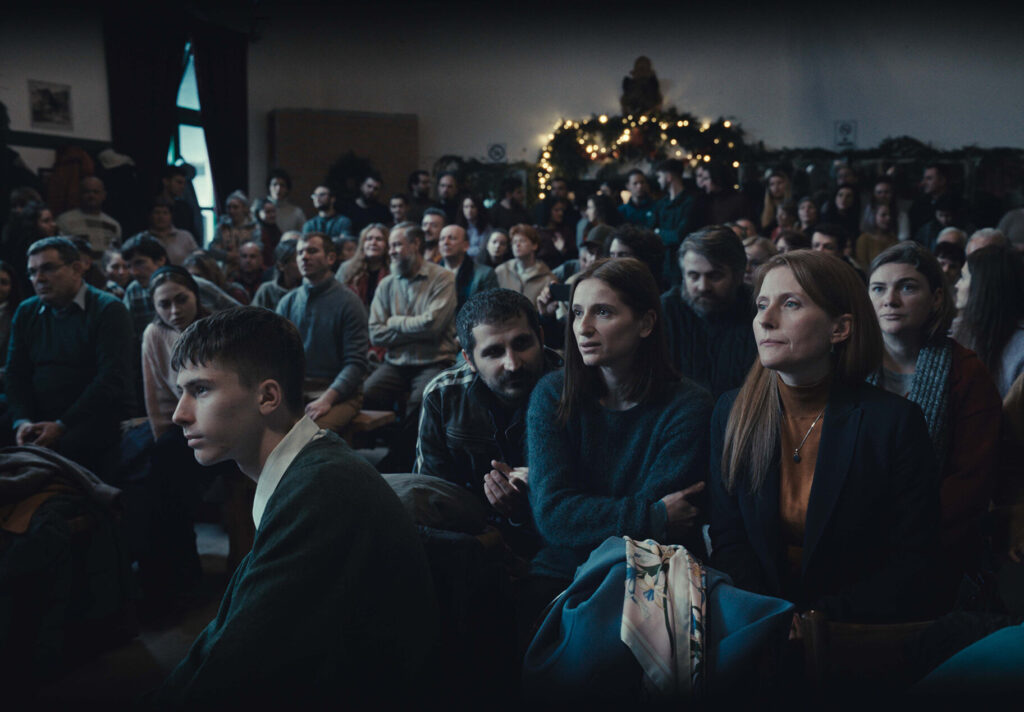
Yet there is more, Mungiu indulging in allegory to suggest that the region itself (shot in widescreen by cinematographer Tudor Vladimir Panduru, employing cool, detached tones) is under siege by, or perhaps in the grip of a mysterious force, lurking, waiting to taking hold at critical junctures. These mysterious moments include a pre-credit encounter where young Rudi comes face to face in the woods with something unseen; a shocking, late picture death and a finale manifesting a literal representation of the symbolic in an incident given to multiple interpretations which, while undeniably fascinating to decode, simply cannot be accommodated by Mungiu’s preceding social realist context.
In R.M.N.—which stands for “nuclear magnetic resonance,” a brain scan procedure one character undergoes, but also for a forensic view of the fear and aggression just beneath the surface of small town civility—the filmmaker considers a hugely controversial immigration trend in today’s Europe as Middle East immigrants make Western countries their (unwelcome) homes. It is also an acknowledgement of today’s global nature of work (one of the Sri Lankan characters also has brother who has emigrated to China) and an unmistakable indictment of those who cling to the demonization of the perceived other, the foreigner, without the self-awareness to consider the real problem.
3 1/2 stars
